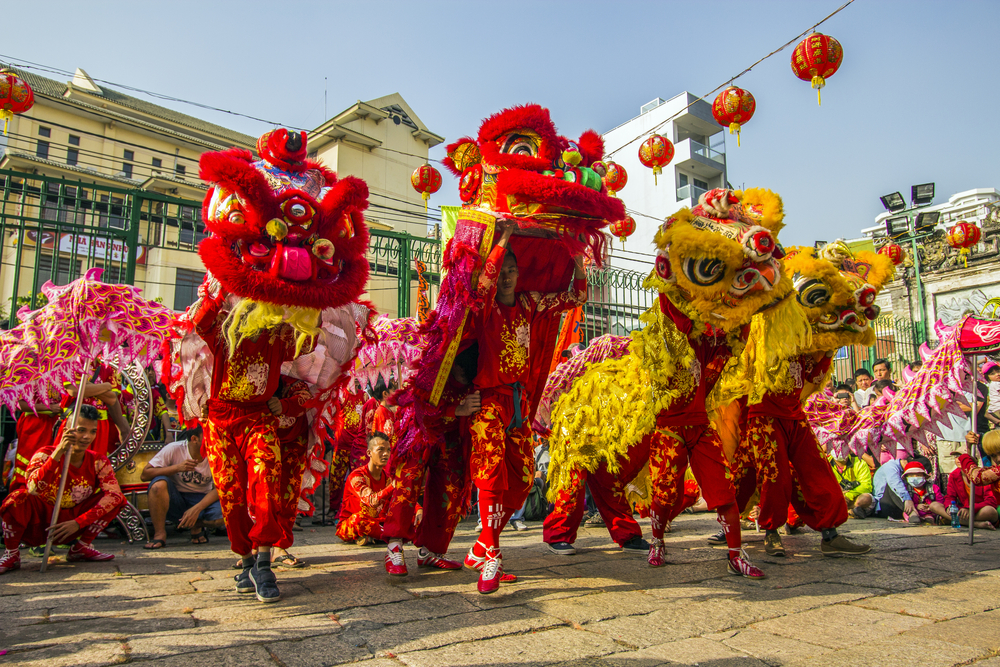11 BBF-2 Laarni Suzette Bernas 4th Blog
Traditions Blog
What Is Chinese New Year?
Chinese New Year, or the Spring Festival, is the most important celebration observed in China, with cultural and historic significance. The festival signals the beginning of spring, and the start of a new year according to the Chinese lunar calendar.
The festival is celebrated across the country, but also has many related celebrations in nations and ethnic groups deriving from China.
Chinese New Year, also known as the Spring Festival, is the most important celebration observed in China with cultural and historic significance. The festival signals the beginning of spring and the start of a new year according to the Chinese lunar calendar. It is celebrated on the second new moon after the winter solstice and ends on the full moon fifteen days later.
The festival is a time to honor deities and ancestors, and it has also become a time to feast and visit family members. The festival is celebrated with fireworks, dragon dances, red lanterns, and other traditional Chinese customs.
A tradition is a belief or behavior (folk custom) passed down within a group or society with symbolic meaning or special significance with origins in the past.[1][2] A component of cultural expressions and folklore, common examples include holidays or impractical but socially meaningful clothes (like lawyers' wigs or military officers' spurs), but the idea has also been applied to social norms such as greetings. Traditions can persist and evolve for thousands of years—the word tradition itself derives from the Latin tradere literally meaning to transmit, to hand over, to give for safekeeping. While it is commonly assumed that traditions have an ancient history, many traditions have been invented on purpose, whether that be political or cultural, over short periods of time. Various academic disciplines also use the word in a variety of ways.
The Zulu people are the largest black group in South Africa and have a traditional hunter-gathering background. Despite consisting of over 100 different tribes, they share common beliefs and traditions, such as ancestor worship, marriage rituals, and clothing style. Zulu culture is known for its iconic shields and spears, but there is much more to it than that. The Zulu culture has survived and is still celebrated today through practices such as beadwork, pottery, carvings, and basket weaving, asA tradition is a way of behaving, thinking or doing something that has been followed by people in a particular community, society, family, etc. for a long time. A tradition can be an idea, belief that is passed down from one generation to another. It can be common to a certain religion, culture or even a family. For example, members of a certain family can have a party on a certain day of the year. If this practice is followed for many years by several generations, this can turn to a family tradition.
While following traditions are not obligatory, many people follow traditions as it is the way of life that they have been taught from childhood. However, it is always better to follow a tradition after knowing the origins and the reason behind that tradition. Since traditions are not strict rules and regulations, it is always possible to change certain aspects of a tradition. In fact, most of the traditions we follow today are variations of an original tradition; over the time, people have added and omitted certain aspects of a tradition. For example, if we look at the history of the Christmas traditions, Christmas trees were traditionally decorated with edibles like apples and nuts; it was in the 18th century that it began to be illuminated by candles. Today Christmas trees are decorated with electric lights and various ornaments.
Difference Between Custom and Tradition
Definition
Custom is a usage or practice common to many or a particular place or group of people.
Tradition is the transmission of customs or beliefs from generation to generation or the fact of being passed on in this way.
Length of time
Custom can be a new practice.
Tradition is always a custom that has been passed down for years.
Connection
Custom, if passed down for generations, can become a tradition
Tradition is a custom that have been transmitted through generations.
IMPORTANCE OF TRADITION;
Traditions are important for several reasons. They foster respect for generations that have come before and carry the wisdom and values of ancestors, providing a sense of continuity and connection to the past. Traditions also create lasting memories which in itself provides us with a wide variety of benefits. They fulfill important criteria for achieving the “Four B’s,” our senses of Being, Belonging, Believing and Benevolence.
Why Is It Important to Keep Traditions?
By Staff Writer
Keeping traditions alive is important for teaching the next generation about a particular or shared past. Traditions are beliefs or behaviors that are passed down from one generation to the next within a certain group or society. Often, traditions are related to one’s nationality or religion. Some traditions are secular and celebrated amongst a wide range of diverse populations.


Comments
Post a Comment